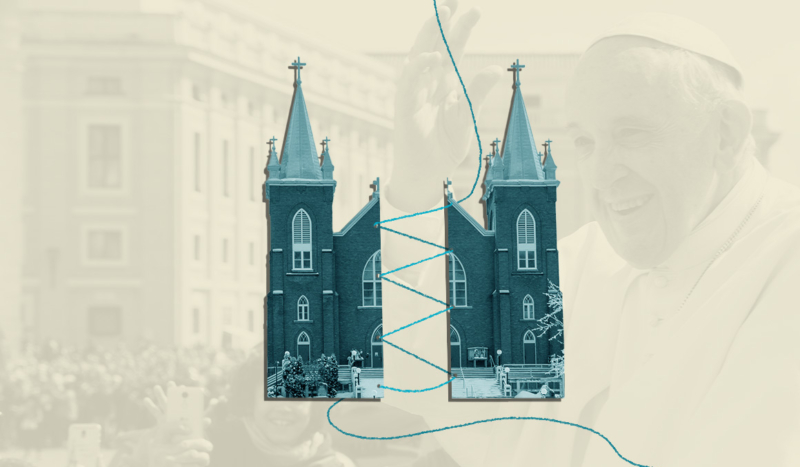
CV NEWS FEED // A noted conservative Catholic at The New York Times published an op-ed piece asking whether Pope Francis has the leadership abilities to hold the Church together or he will continue to divide it.
In the opinion piece released Wednesday, Catholic columnist Ross Douthat asked the question, “How will he (Pope Francis) hold this thing together?”
Douthat, a convert to Catholicism and the New York Times sole conservative columnist, discussed Francis’ approach to dealing with what he dubbed the “political wings” of the Church.
Since the beginning of November, Pope Francis and the Vatican have taken deliberate steps attempting to rein-in both the conservative and liberal sides of the church. Douthat noted that in November, Francis attempted to rein-in two American prelates who openly opposed his pontificate, removing Bishop Joseph Strickland as the ordinary of Tyler, Texas, and allegedly evicting Cardinal Raymond Burke from his Vatican apartment and cutting off his stipend.
Across the aisle, the Vatican published a letter to the German episcopacy saying that the Vatican will not discuss homosexual marriages or women’s ordination during meetings set to be held next year.
“In each case, you have an act of discipline seemingly tailored to the way that the rebellions are manifesting themselves,” wrote Douthat:
Among conservatives and traditionalists, specific critiques of the pope himself from prominent bishops and cardinals have now met with specific personal punishments. Among liberals and progressives, a broad attempt to liberalize the church’s moral teachings has now met with a general doctrinal rebuke.
Douthat noted an apparent discrepancy in the Vatican’s handling of papal criticism and doctrinal error and warned of the potential problems that this could lead to.
“Both sides will note, for instance, that criticizing the pope earns you a sacking but that seeming doctrinal disobedience merits only a sternly worded letter,” wrote Douthat. “Unless the latter move is eventually backed up by something like the Strickland firing, progressives are likely to persist in the same line the German church is already pursuing.”
Douthat mentioned, though, that this divide extends well beyond Pope Francis’ tenure; it also relates to the way individual countries are leaning.
As an example, Douthat examined the recent Catholic University of America study, released earlier this month, which revealed that a majority of newly ordained priests identify as conservative or moderate, signifying the depleting progressive wing of the American Church. Yet in Germany, they are struggling to attract vocations as the church becomes more progressive
“Thus, a conservative Catholic in the United States can feel reasonably secure in the future of the sacramental church—a future that the sacking of a conservative bishop by a more liberal pope can’t plausibly derail.” Douthat wrote:
In Germany, by contrast, the future that seemingly can’t be derailed is one of steep decline and increasing dominance by liberal-leaning laypeople. A new pope could be elected tomorrow and try to enforce greater orthodoxy within the German church, but without younger priests who embody those beliefs, the exercise could just lay Rome’s weakness even barer than today.
Douthat concluded that ultimately this divide is not Francis’ fault but provides a grim outlook on the future of the problem.
“Sometime soon, a new pope may get the chance to try,” wrote Douthat. “But what he will inherit is not just specific messes made by his predecessor, but an underlying reality of division that any policy made in Rome will need divine assistance to resolve.”

